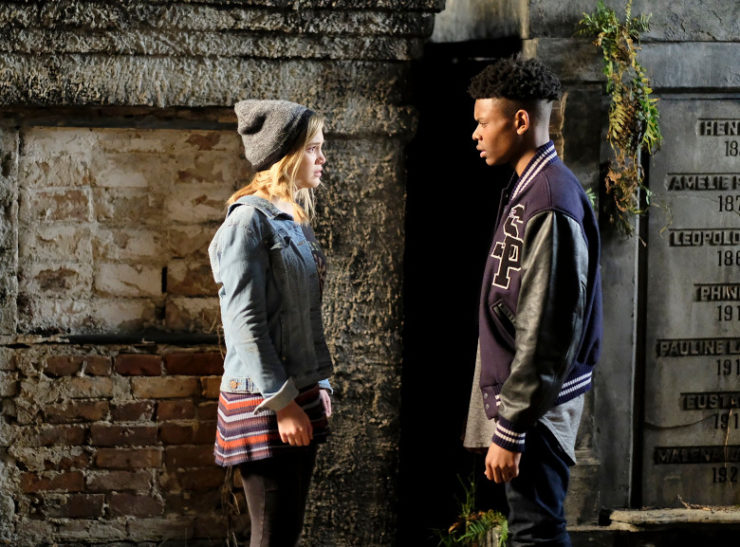For a TV show called Cloak and Dagger, there’s not a lot of “and” yet: Except for a few key scenes, Tandy and Tyrone rarely interact in the two-hour series premiere; which begins to set up why these two very different New Orleans teenagers are connected by powers beyond their control. However, considering that Cloak and Dagger’s very essences are inversely proportional—all-consuming dark versus piercing light—the narrative choice to pull them apart, and then thrust them together when it counts, mostly works.
It does make for a slow-moving pilot, one that prioritizes building up their respective motivations over a more typical superhero origin story. By the end of it, there are no formal costumes nor choosing of names, but Tyrone and Tandy’s existences have forever been altered.
This is a non-spoiler review of the first two episodes, though it touches upon minor plot points.
Though to be fair, these life-changing events were put into motion in the opening flashbacks, set on the night that the Roxxon Corporation’s oil rig exploded. Little Tandy and her distracted workaholic father, who works for Roxxon and will ultimately be blamed for the accident, swerve off the road into the water. Little Tyrone, shadowing his older brother Billy through some shady dealings, watches his brother get shot when the cop who has cornered them flinches at the explosion and accidentally pulls the trigger; as Billy’s body falls into the water, Tyrone jumps after him.
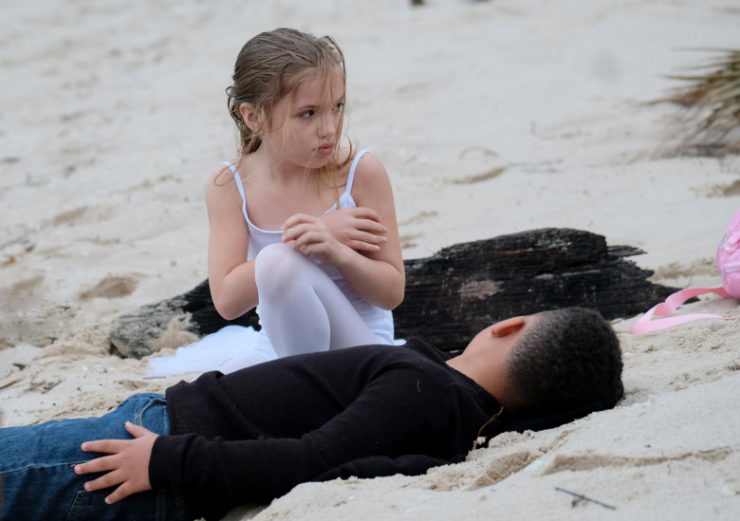
A shockwave of something from the oil rig goes through these two children’s bodies and, we later learn, saves their lives. But it’s not until “years later” that they cross paths again, very much changed from the little ballerina and would-be carjacker. Tyrone (Aubrey Joseph) is a cautious, quiet boy who plays basketball and sings choir at his prep school, yet finds himself starting to crack under pressure from his parents and his team to be present, to be perfect. Tandy (Olivia Holt), by contrast, is a teen con artist who lives in a church but uses her knowledge of the world of the wealthy to occasionally slip back into it when she needs to steal cash or merchandise that she can turn over. From the start, they are perfect opposites.
Using this device to code every interaction and development as inversely proportional could be heavy-handed, but instead it provides subtle shading to the story. The number of riffs on darkness versus light are impressively creative: Tyrone’s propensity to hide under dark towels or sheets; Tandy spotting a pair of glowy rave sticks at a party; the use of “Make Me a Shadow of Your Peace” (that catapulted this lapsed Catholic back to grade school). Even the ways in which both children initially encounter the other’s powers underwater speak to the different manifestations of approaching death: the creeping darkness versus the light at the end of the tunnel.
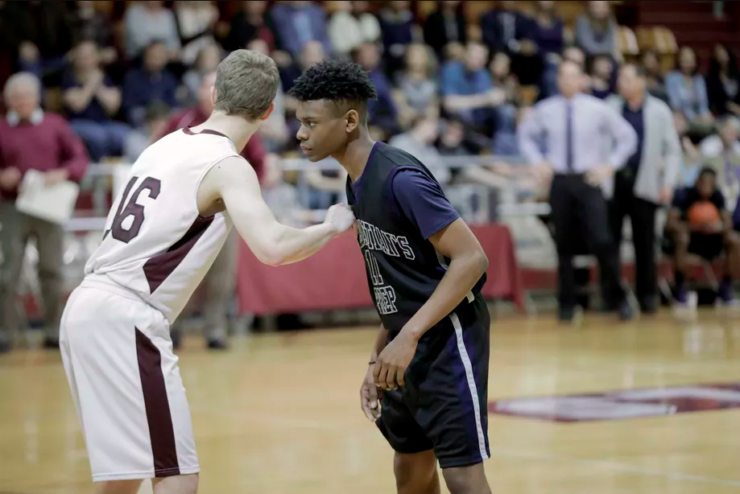
These elements are also represented in their respective family dynamics: Self-sufficient Tandy and her hapless mother, quick to blame her supervisors for failed jobs and just as eager to turn to sleazy married boyfriends for pills and empty promises, are constantly at each other’s throats. Their barbed taunts and caustic criticisms of one another’s choices are death by a thousand cuts. By contrast, Tyrone’s parents provide the kind of all-encompassing, nameless warmth of security, of love, of respect with a healthy dose of fear about the world—a combination that can protect but also smother.
Pushing back against their respective family dynamics is what thrusts them at one another… and perhaps a healthy dose of fate? Trailers for the series have teased some sort of prophecy about “the light and the dark,” “one lives while the other dies,” and other high-stakes supernatural drama, but at least in the pilot, they meet like any other kids: at an illicit party in the woods.
Like other teen dramas, the series acknowledges the reality of alcohol, drugs, and sex, but never in a way that feels salacious, only realistic. Tyrone avoids all substances, in an effort to maintain complete control over his life. Tandy’s sole role model for control was her mother’s dependence on pills, which started even before the accident. While she and her scammer boyfriend Liam are intimate, she’s still clearly closed off to him, not trusting him with details about her increasingly bizarre manifestations of power.
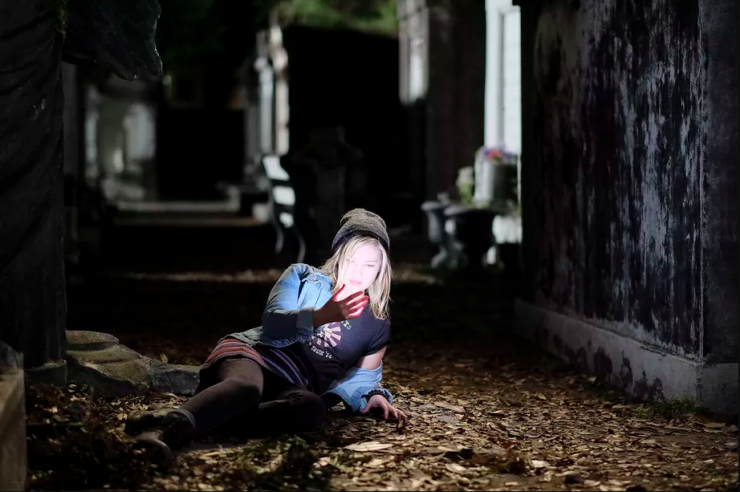
Cloak and Dagger smartly teases just hints of each power, weaving them more into the character arcs than letting them dictate the plot: Tyrone finds himself teleporting in his sleep, waking up next to a Roxxon Corp sign in a makeshift cloak; meanwhile, Tandy unwittingly draws attention to herself by conjuring sharp blades of light at the worst-but-best times. And while a trail of stabbings is what attracts the attention of a young female cop, Tyrone could be in more immediate danger of the seductive darkness of revenge against those who poisoned his family—even as he realizes that the revenge itself is the poison.
One aspect of their shared gift that’s frustratingly vague is whatever shadow realm they enter when they touch someone they love: In some cases they enter an exposition-heavy memory, in other cases a parent’s nightmare. The purpose of these interludes is so far unclear, whether they will serve as just flashbacks or some sort of in-between plane that either can manipulate.
Buy the Book
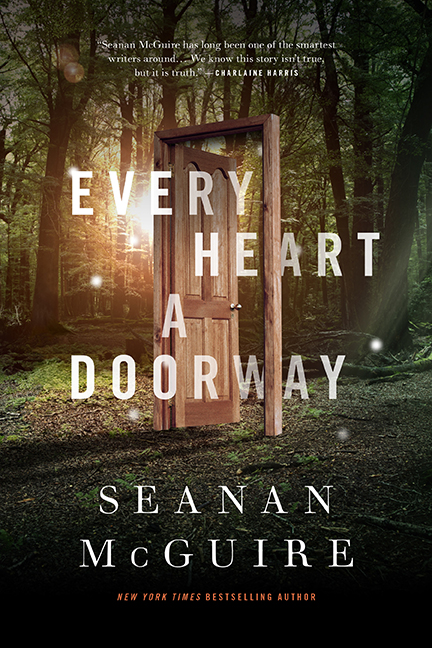

Every Heart a Doorway
At times the dialogue errs on the side of clunky, especially as concerns Tandy’s propensity, of which she is quite aware, to run away from the bad and the good in her life. It’s interesting when she’s aware of it yet still gives in to that temptation; less so when every person whose path she crosses tells her something she already knows. I want to know more about her—like how she’ll react to supernatural forces conspiring to keep her from finding the easy out.
By contrast, Tyrone’s family dilemmas are wrought with grace. Rather than fall apart like Tandy’s mother, Tyrone’s has turned their tragedy into a mission, to protect other families from experiencing the same loss. That often translates to being hard on her surviving son, which comes out in a wrenching exchange: “Like you’re afraid if I don’t do everything perfectly, you’re gonna lose me,” he snaps, only for her to respond, “I’m afraid you’re gonna do everything perfectly and I’m going to lose you anyway.”
The series is clear-eyed about the sorts of dangers awaiting each in the wrong dark alley, completely unrelated to their powers. Tandy must fend off a would-be rapist, while Tyrone could find himself facing down the same fate as his brother on the wrong side of gun—even by the same corrupt cop who shot Billy.
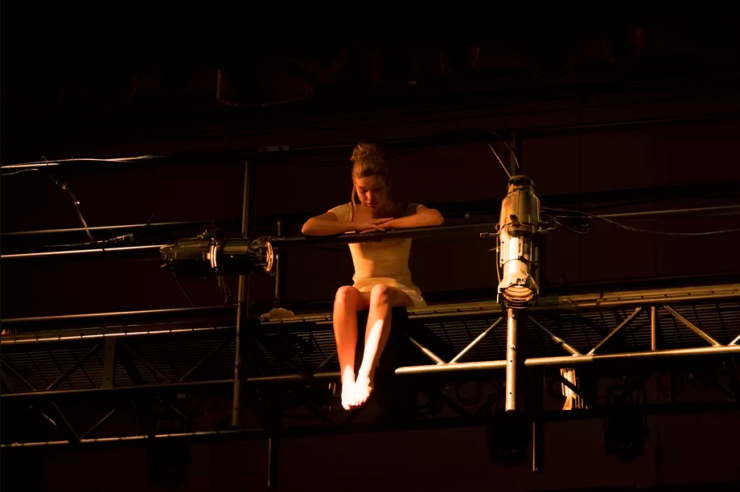
Moving the story from New York City to New Orleans was an excellent creative choice, though the setting feels underutilized in these two episodes. Aside from a key scene at the cemetery and a visit to the ballet, the spirit of the city doesn’t entirely come through. Hopefully that will be remedied in future episodes, perhaps even as soon as the next one, which includes a hallucinatory trip that will likely also fill in some more blanks about Tyrone and Tandy’s shared fate.
I didn’t love the pilot as much as I had hoped, for the aforementioned slow-burn plot. It doesn’t have the explosive premise of Runaways, Marvel’s other current superhero teen drama, yet in just two episodes it has plumbed impressive depths in its two leads. Where Runaways had more obvious plot points to follow, Cloak and Dagger has already set itself up as a more existential story. Its meditations on darkness and light make it worth tuning in for more episodes, though hopefully soon we’ll see more of what Tandy and Tyrone mean when they say in the trailer: “The universe keeps pushing us together.” “The universe keeps pulling us apart.”
Cloak and Dagger airs Thursdays on Freeform
Natalie Zutter only knows Cloak and Dagger from their stint in the Runaways comic, and wouldn’t mind a crossover between both series. Talk teen dramas, supernatural and otherwise, with her on Twitter!










